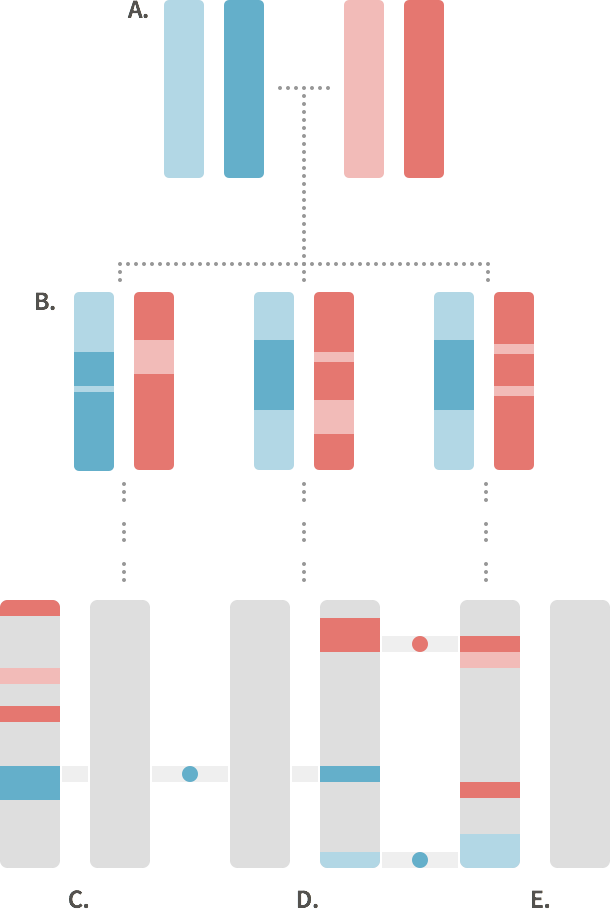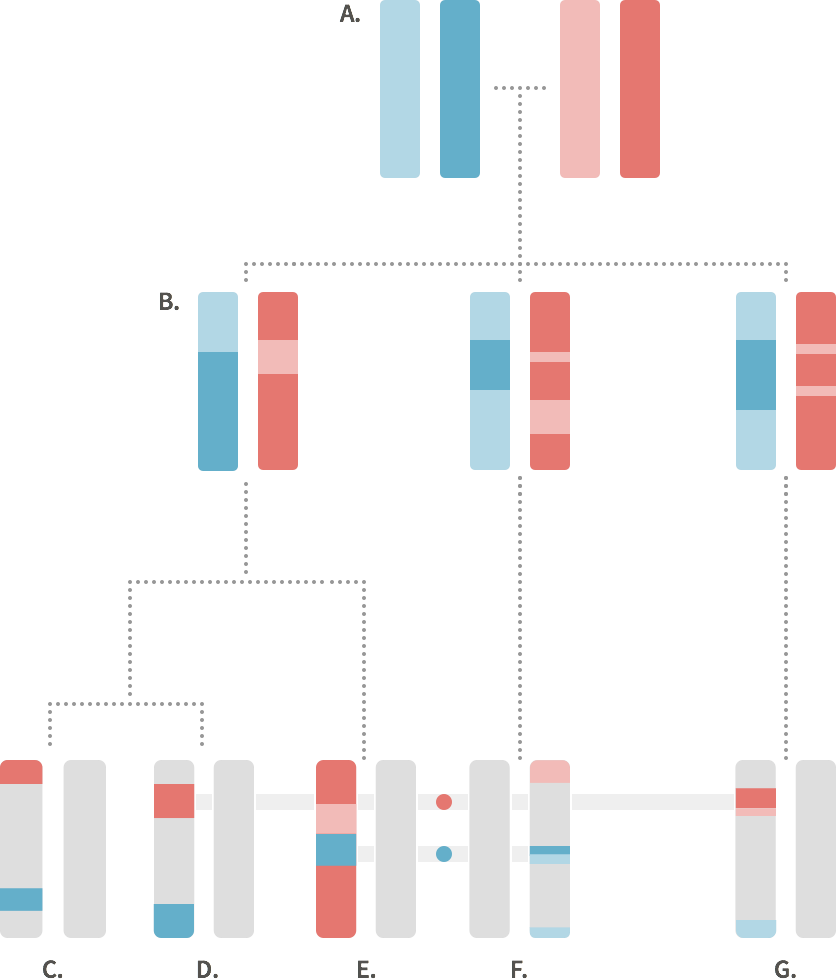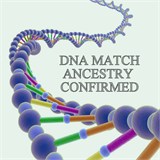The short answer is, yes. To understand why other family members should have their aDNA tested, let’s review how genes get passed down. (For more detailed information, you can read about genetic inheritance.)
You and your 5th cousin have the same 4th great-grandparents. For you to have a DNA match with that cousin, the same section of DNA would have to be passed down through six generations to both of you. Since DNA recombination is a random process, there may be no common DNA inherited by both of you (see Figure 1).
 Figure 1. An inheritance chart showing why you and some of your distant cousins may not be DNA matches.
Figure 1. An inheritance chart showing why you and some of your distant cousins may not be DNA matches.
Table 1 shows how likely you are to have a DNA match with a cousin. As you can see, you may have a known cousin—and perhaps a shared ancestor in a DNA Circle—but no DNA evidence to support your relationship.
| Relationship | Likelihood of a DNA Match |
|---|---|
| Siblings | 100% |
| 1st cousins | 100% |
| 2nd cousins | 100% |
| 3rd cousins | 98% |
| 4th cousins | 71% |
| 5th cousins | 32% |
| 6th cousins | 11% |
| 7th cousins | 3.2% |
| 8th cousins | 0.91% |

Table 2 shows how likely it is that your close family members would have a DNA match with a cousin that you don’t share DNA with. Keep in mind that if the cousin is on your father’s side of the family, the close family member (like your brother or aunt), must also be on your father’s side of the family.
| Distant
Relationship |
Sibling | Uncle/
Aunt |
Niece/
Nephew |
Parent | Grand-
parent |
First
Cousin |
Second
Cousin |
| 3rd cousins | 87% | 99% | 64% | 96% | 100% | 94% | 97% |
| 4th cousins | 42% | 78% | 25% | 63% | 92% | 57% | 64% |
| 5th cousins | 15% | 37% | 8% | 26% | 58% | 22% | 26% |
| 6th cousins | 4% | 13% | 2% | 9% | 23% | 7% | 8% |
| 7th cousins | 1.5% | 4% | 0.8% | 3% | 8% | 2% | 3% |
| 8th cousins | 0.43% | 1.23% | 0.23% | 0.81% | 2.3% | 0.65% | 0.77% |
It’s important to remember that some of your close relatives, like your nephew or half-sister, have some ancestors that you don’t, which means their DNA matches along family lines that you don’t share aren’t relevant to you in general.
